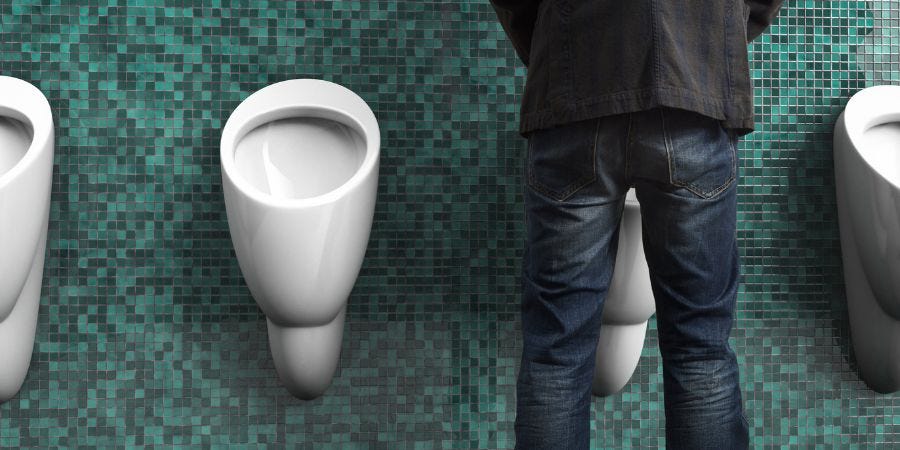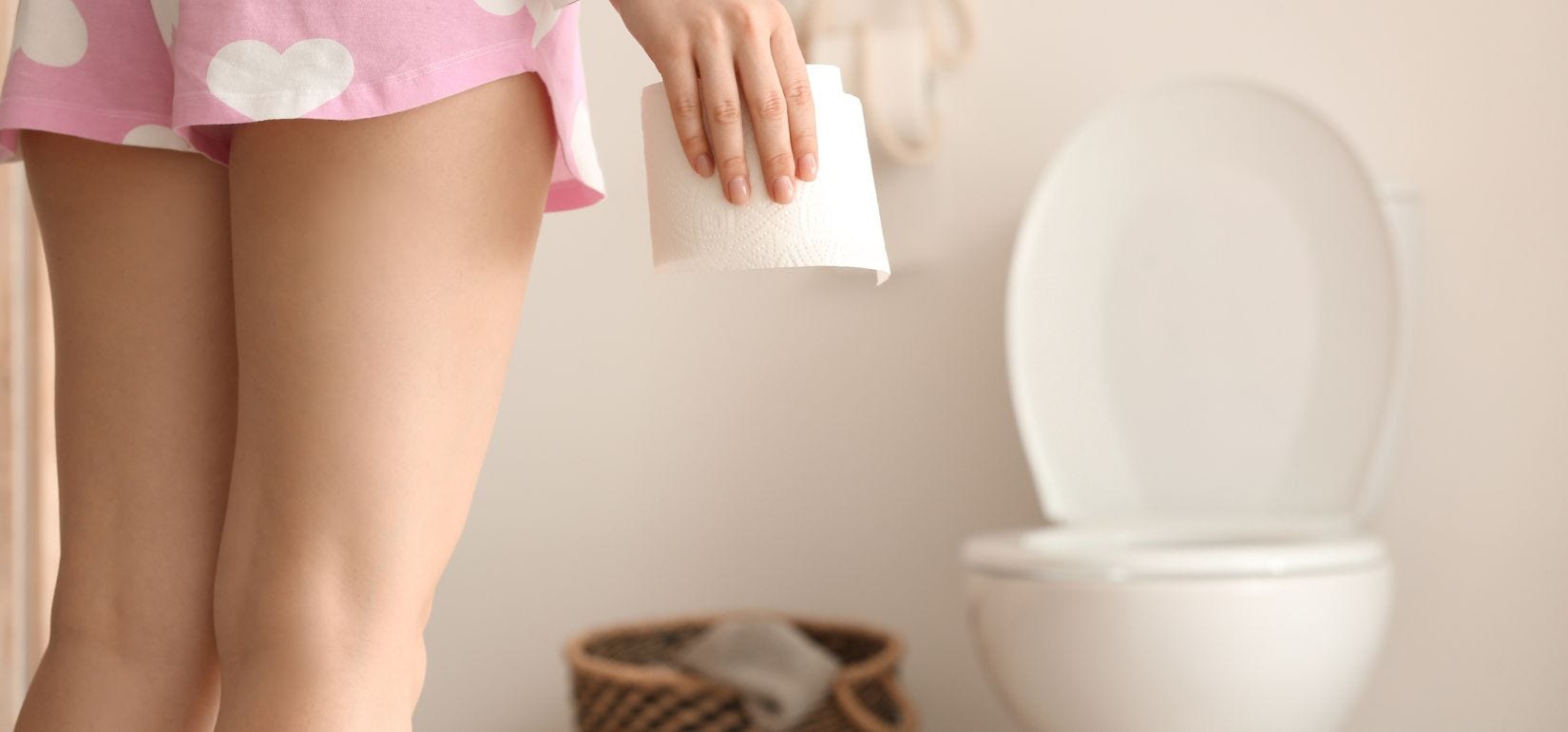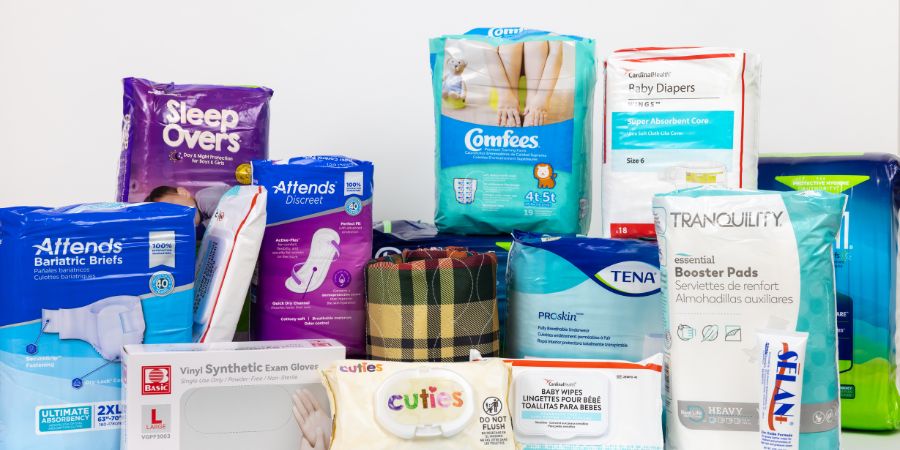Edited by Marlee Septak, Senior Content Specialist at Aeroflow Urology.
Key Takeaways:
- Navigating incontinence as an adult can be challenging, especially when it comes to disclosing your condition and navigating intimate relationships.
- Advocating for yourself, finding a support system, and taking care of your mental health can improve your quality of life as an adult with incontinence.
INCONTINENCE PRODUCTS THROUGH INSURANCE:
Aeroflow Urology is in-network with many Medicaid and Medicaid-managed insurance plans and is accredited by Medicaid. Complete our Eligibility Form, and we’ll automatically check to see if your plan covers incontinence supplies. ***Must meet certain requirements to qualify.***
You will also receive the care and attention every person managing incontinence deserves: A personalized list of 100% insurance-covered incontinence supplies, a dedicated Continence Care Specialist you can contact during business hours, a user-friendly online portal for easy monthly reordering, and educational content.
Get the continence care you need with the dignity you deserve. Join the Aeroflow Urology family today! It only takes 5 minutes to get started.
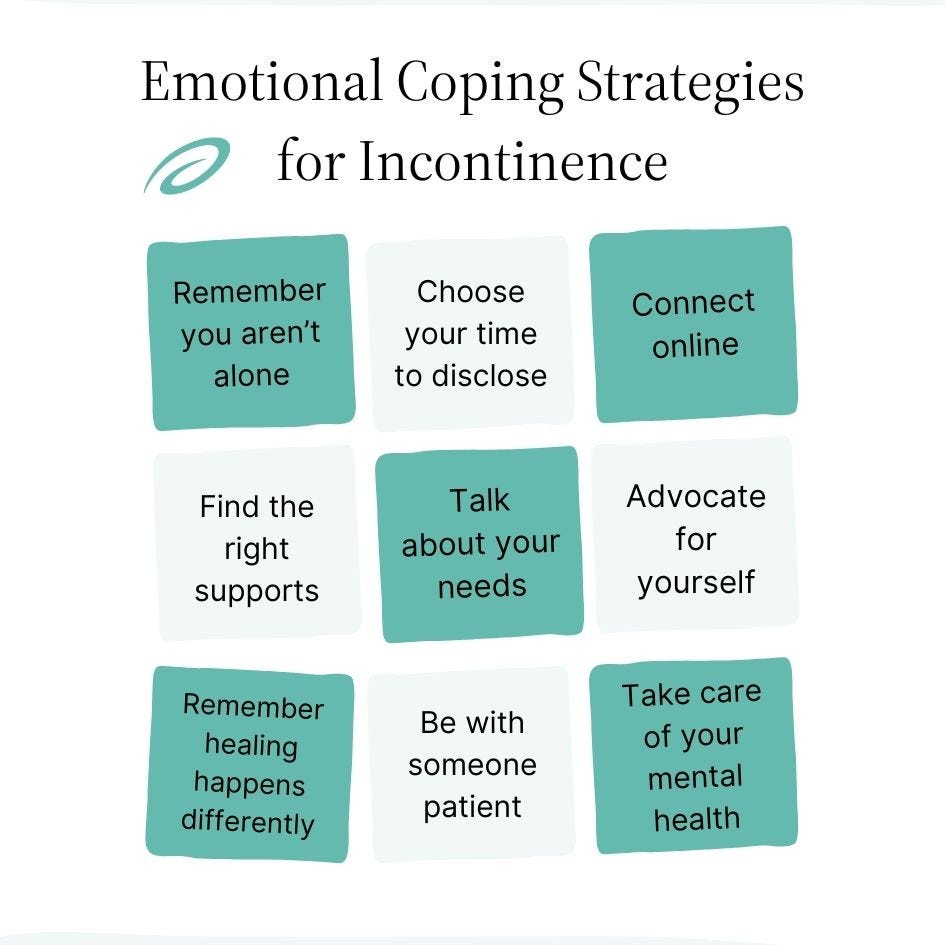

Check Your Eligibility
2 Easy Steps
Discover the continence care essentials available through your Medicaid plan.
The feeling of not being able to wait to use the bathroom and having an accident can be extremely challenging to process, no matter where or how it happens. Incontinence impacts every person differently, and it can have serious emotional and social impacts on your quality of life.
In this blog, I’ll share my personal experiences and insights about the emotional and social aspects of living with incontinence, accepting incontinence products, and how disclosing my condition has impacted my life.
Hiding My Incontinence During Childhood
Throughout my childhood, I tried my best to hold my bladder and bowels to make it to the restroom in time. Because I had chronic constipation, I frequently experienced intense pain and discomfort. Occasionally, I’d have a small bladder leak before or after using the toilet. On bad days, I’d accidentally void my bowels in my underwear.
My parents couldn't afford diapers, so I felt like I wouldn’t be prepared if I had an accident away from home without a change of clothes with me, leading me to feel like I couldn’t have any friends outside of school. I didn't feel confident when I had to clean up after an accident, no matter what I was wearing, and I felt like I would always be rejected for wearing pull-ons or diapers. I was even told diapers would slow me down and make it difficult to do the things I wanted.
Aside from having leaks and accidents without having access to protective products, I couldn't recognize that I needed to go to the bathroom due to sensory issues. Restrooms sometimes overwhelmed me, and I would have meltdowns, disassociate, and try to cover my ears while using them. All of this caused cycles of stress and anxiety and a feeling of confliction.
Throughout my childhood, I tried to mask my accidents and hide the emotional impacts incontinence had on me, but it didn't feel right.
Disclosing My Incontinence
Accidents are not something that can be hidden all the time, so eventually, I felt like I had to tell people about my condition. I felt so burnt out from running away from the idea of having to wear incontinence products, and I wanted to have support. However, disclosing and coming out about incontinence was not easy for me, no matter who I wanted to tell.
The first person I talked to about my condition was a close friend. At the time, I wasn’t sure who to turn to, but I knew I wanted to come out on my own terms without anyone else doing it for me. I ended up texting my friend a long message about my feelings, and I received a reply from them saying I deserve to be accepted for who I am, that it wasn’t my fault, and that I shouldn't let my condition define the value I have as a person. I felt nervous trusting them at first, but they surprised me when they gave me my first pack of pull-ons from a local store, in private and away from my family. It didn't come from a place of judgment, but instead, a place of kindness and willingness to help.


Even though I had told my friend about my condition, I still felt ashamed and embarrassed asking for my parents’ help. While my parents knew I had frequent accidents in the past, I felt embarrassed to speak to them about what I needed because I wasn’t sure how they would respond. I was afraid they would shame or criticize me for not putting more effort towards using the restroom like everyone else.
I didn’t get to disclose my incontinence to my parents on my own terms at first. After receiving the pull-ons from my friend, I tried to be discreet in managing my incontinence by using the products occasionally in private. But one day, after leaving my parents’ house to go out of town, my mother cleaned the house and my room, and came across the supplies I had in the closet.
When my mother found the pull-ons, I felt anxious that I might get in trouble and be punished in some way. She ended up texting me, telling me she found my supplies. I felt exposed and embarrassed when I was forced to disclose my condition to her when I wasn't ready.
Thankfully, my mother was understanding. She knew I had a history of frequent accidents at home and school when I was younger, and she was proud that I was trying to do the right thing and manage my incontinence on my own.
My mother now understands that managing my incontinence with protective products makes me feel comfortable and accepts the products I need to use.
Incontinence & My Relationships
When I first met the person I would eventually start a relationship with, I wasn't planning on introducing myself as someone with incontinence or someone who wears diapers and pull-ons. But, not too long after meeting them, they were made aware of my condition.
Before my partner knew about my incontinence, we went to visit the mall. We were in a store when I had a strong, sudden urge to void my bowels. To avoid having an accident, I ran out of the store to go to the restroom. I was in extreme pain and I cried from trying to get relief. I was surprised when my partner came to check on me. They said they were worried about me and told me they hoped I’d feel better soon. I wasn't expecting them to check on me, but knowing they cared about me gave me the motivation I needed to get through that difficult moment.
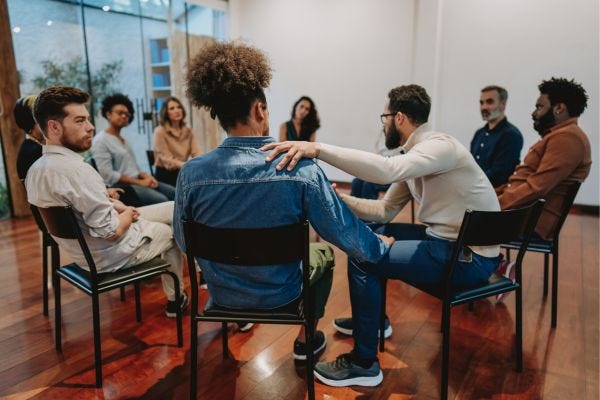

At the time, I wasn’t emotionally ready to disclose my condition to them, so I said I had issues with my bowels. I was careful about what I said to avoid sharing too many details with them, letting them know that I mostly have good days, but occasionally have difficult moments that can't wait. The conversation was brief, but I felt comforted by the fact they were coming from a place of kindness and patience.
On another occasion after an accident, my partner said something that really stuck with me: “Don't be upset over something you can't control. You deserve to be loved and cared for." Those words made me feel trusted and understood. Today, those kind words remind me to accept my body's needs even if it’s difficult.
Emotional Coping Strategies
As much as finding a sense of togetherness with others is helpful for those with incontinence, we have to be willing to understand our journeys on our own terms. We need to accept that we can’t control what happened in the past, and we can try to be present in current moments instead of overthinking about when we’ll need to use the bathroom next.
Here are some tips I recommend for coping with the emotional side of incontinence:
- Remember you aren’t alone. It’s important to know you’re not the only one experiencing incontinence.
- Choose your time. Decide when you’re ready to disclose your incontinence and other conditions and do it with whomever you want to.
- Find a place to connect online. Having places to connect online can be really beneficial if you have incontinence. Aeroflow Urology’s Adult Facebook Group is one of my favorite places to safely discuss all things incontinence.
- Find the right support. Support can also come in different forms. Family members, partners, friends, and depending on the situation, individual therapy or counseling may be helpful.
- Communicate. Make sure you communicate with your friends, family, and partners about your needs.
- Advocate for yourself. Let others know what you need to manage your condition or emotional troubles, no matter what that may be. Remember that your rights need to be respected, even if you have a disability like autism that can contribute to incontinence.
- Remember that healing doesn’t happen in a straight line. It can be difficult to let go of traumatic memories that occurred while managing your incontinence. Healing from the past takes patience and knowing when to reach out to your supporters. Trauma can occur at any age and it can take time to heal, no matter when it happened.
- Be with someone that’s patient. Being with someone who is patient, whether that’s a partner or close friend, makes it easier to adjust to your surroundings when managing incontinence.
- Take care of your mental health. While we may put extra emphasis on physical health, mental health is equally as important! Incontinence can cause anxiety, stress, shame, and depression, so be proactive about finding support.
Get Free Incontinence Products With Aeroflow Urology
Before I decided to use incontinence products, I was often uncomfortable trying to blend in making it to the toilet using regular underwear. I tried everything to manage my leaks; eating a high fiber diet and drinking lots of water, timed voiding, Kegels, and medications that brought on unwanted side effects.
My family also tried working with a local home health care service that accepted my Medicaid plan. Most times, the products I received didn’t fit my body or my needs; they were often too large or weren’t absorbent enough. They were the same low-quality items I could have bought at my local grocery. Oftentimes, we wouldn't know when products were shipped or what we would receive until they were delivered to our home unexpectedly. We had no easy way to access or change information online. I knew I couldn’t find products that fit my unique needs unless I found an answer.
After applying for free incontinence supplies through Aeroflow Urology’s online form, I was given a personalized list of products that were all available through my insurance. I found it easy to reorder my products every month through their online portal and chat with their Continence Care Team when I needed help. Because the products fit me well and measured up to my needs, I no longer had to center my life around the nearest toilet. To find out if you or one of your family members can get free incontinence supplies like I did, apply through their form.
Living with incontinence and navigating the emotional and social aspects of the condition can be challenging, but it's a journey that we don't have to face alone. Together, we can find comfort and connection in our shared experiences.
Jump To: Top | Eligibility Form
Disclaimer
Information provided on the Aeroflow Urology blog is not intended as a substitute for medical advice or care from a healthcare professional. Aeroflow recommends consulting your healthcare provider if you are experiencing medical issues relating to incontinence.





